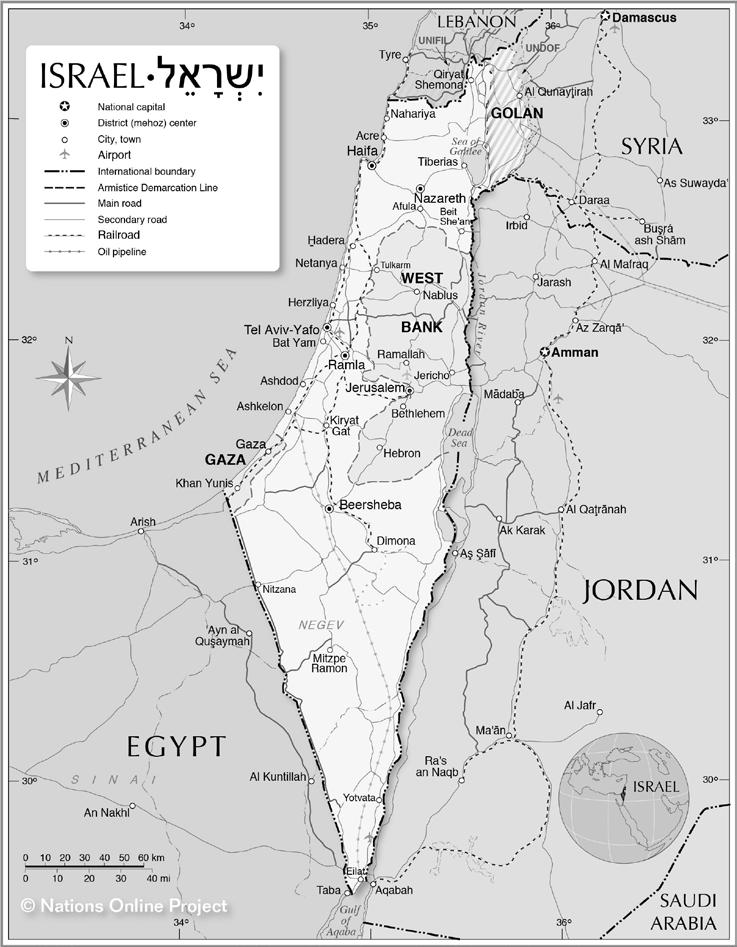
4 minute read
Reflections for Yom HaShoah
Reflections for Yom HaShoah EDITOR’S NOTE: The following article was originally published on January 29, 2020 in ZWISCHENZEILEN MAGAZIN – LEBEN IN ISRAEL (Israel Between the Lines Magazine – Life in Israel). This year Yom HaShoah will be commemorated on the 21st of April. While there are many personal and important stories shared in conjunction with the commemoration of the Shoah, we hope you will agree that the article featured here brings a different and meaningful perspective to this difficult subject. We would like to thank Jacques Korolnyk for his recommendation. It is reprinted here with the author’s permission. About the author: Katharina Höftmann is a German-Israeli journalist and author of several books.
I lived for almost 22 years without ever commemorating a Holocaust memorial. It is not that there is no Holocaust Remembrance Day in Germany. It actually takes place today, like every year on January 27, the day Auschwitz was liberated 75 years ago. But the German Holocaust Remembrance Day has no connection to normal life, or to the citizens. Ceremonies are attended exclusively by high-ranking politicians and dignitaries. At most, it flutters briefly into the German living room as a news report, and with the word “Holocaust”, you can be sure that the average German sticks his nose into his beer glass while on his sofa and thinks “not again”. There is usually very little in my country of birth between “never again” and “not again”.
Advertisement
So for almost 22 years I was not Comment on Holocaust Memorial Day: We Need Sirens By Katharina Höftmann
really aware that there is such a thing as a Holocaust Memorial Day in Germany. Shortly before my 22nd birthday, on April 25, 2006, I saw Yom HaShoah in Israel for the first time. Yom HaShoah cannot be ignored in Israel. A siren howls across the country for two minutes and everything comes to a standstill. Even on the highway, the cars stop and people stand next to them and commemorate the six million victims of the genocide. Two minutes can be very long if you stand on the side of the road and a siren screeches over your head. Two long minutes in which you actually have no choice but to think of the Shoah. In the ten years that preceded my first Yom HaShoah in Israel, I occasionally thought about the Holocaust and its victims (at around the age of 12 I had a phase in which I literally devoured books on the subject, especially biographies). I also saw “Schindler's List” and “Life is Beautiful” and cried my eyes out for hours. But never before had I been forced to stop and think. I had never stood in the midst of a lot of people who also just stood still to remember.
I do not know whether it is this completely inactive two minutes or the collective experience that makes Yom HaShoah so haunting, but I know that from the first time I experienced it, I thought: Why is there nothing like this in Germany? Especially in Germany! This thought was followed by the question of whether all people would stop in Germany? Would all the cars stop on the Autobahn and would people get out? For two minutes, being silent for the victims of the Shoah also means being aware of the guilt for two minutes – at least that’s how I feel. For two minutes my brain darts between “Oh G-d, all the poor people” and “Oh G-d, how could we?” It is two exhausting minutes, and I never want to do without it again.
It is an irony of fate that as a German I only really began to understand the full extent of the Holocaust in Israel. It is something that I criticize in the way Germany handles the memorials of the Holocaust. Yes, we do have memorials, but no Holocaust memorial in the world can do what Yom HaShoah does in Israel: two minutes of silence in which you only hear yourself and the siren. In which the horror is raised every year anew. In which you are confronted by it, and can not just wipe it out with excuses like “What do I have to do with it?” In these two minutes, the Holocaust becomes a personal matter. It is not the “never again” speech of a politician, or a commemoration of the six million victims, but the question: “What do I have to do with it?”. It is a siren that we need urgently in Germany to wake us up. Soon there will be no direct survivors. Most of them are already too old to tell. If we don’t have a functioning culture of remembrance in Germany, one with which German citizens identify, “never again” may become “never say never”. o









